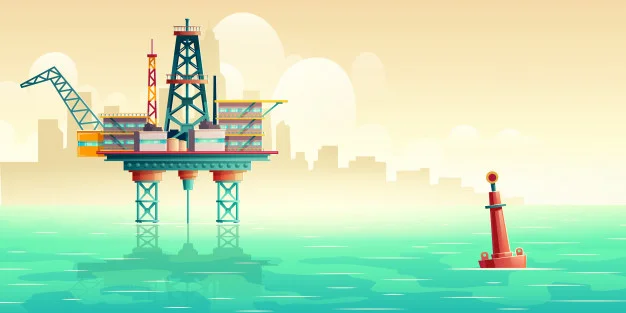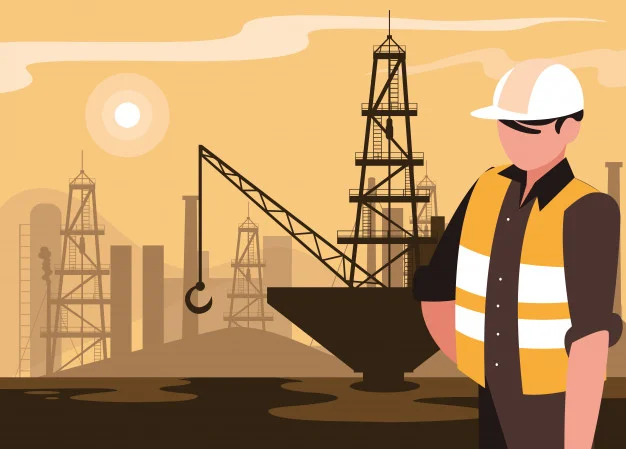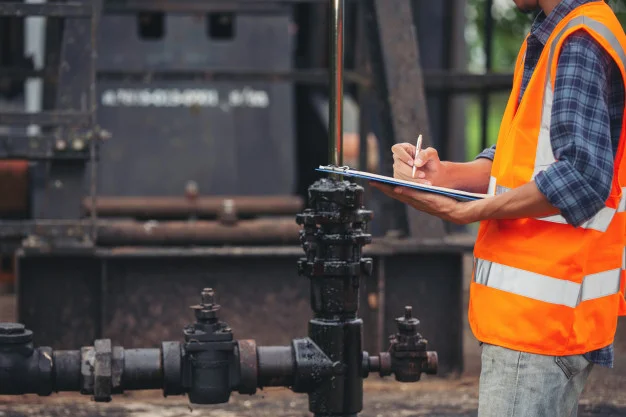
Mining activities have long been carried out by humans. Thanks to this, civilisation has evolved and things got easier from the iron age and bronze age onwards. Mining is also one of the key players in fulfilling energy for humans’ needs.
If you're interested to study the mining and oil & gas programme, there are several universities in Malaysia that offer this course.
What is Oil & Gas all about?
Oil and Gas Engineering is a field combining engineering and earth sciences. Oil and gas engineering is a subfield of petroleum engineering.
Petroleum engineering focuses on using knowledge about the earth's physical attributes to find hydrocarbon sources.
Oil and gas engineers work for the energy industry to find the most likely spots for oil and gas deposits.
The education required for these fields is the same. In fact, most Oil and Gas engineers have degrees in Petroleum Engineering, though some also study Geology, Physics and other sciences.
Besides coal, the mining sector also produces other metals that are vital for daily activities. Some of them are gold, copper, lead, nickel, diamond, and many others.
Oil and gas is also the source of global energy. As there may be a lack of skilled manpower from time to time, there is always demand for professionals in this field.
Graduates from Mining and Oil & Gas in Malaysia have the right skills to venture in the career of mining and exploration of gas and minerals. Through this career, you will reap a lot of advantages personally and professionally.
What subjects are taught in Oil & Gas studies?
Many degree courses in Oil & Gas follow professional body guidelines.
The subjects that you come across will vary depending on your specialisation.
Here is the curriculum offered by UCSI University for their Petroleum Engineering degree:
|
Year 1 |
|
|
Year 2 |
|
|
Year 3 |
|
|
Year 4 |
|
What are the skills and characteristics needed for Oil & Gas course?

Check the following qualities before you decide on taking this course to ensure that you’re prepared:
1. Teamwork
Teamwork is common in technical and engineering environments. It is crucial that you are able to work effectively with others, especially in big projects.
2. Attention to detail
Professionals in Oil & Gas are required to approach their projects with a strong level of accuracy. You will need to be able to foresee challenges in tasks and tackle them proactively. By preventing errors, it will help to minimise any potential injuries.
3. Time management
Oil & Gas students should have the ability to multitask and complete tasks in a timely manner. Usually, professionals in the industry will be working on multiple projects at a time, so being able to meet deadlines is crucial.
4. Communication skill
Effective communication is critical to ensure that all team members are clear of the needs and requirements of a project. You will need to be able to express and communicate your ideas clearly across different departments.
Top universities for Oil & Gas courses in Malaysia
The table below showcases Malaysia’s top universities for their Oil & Gas course:
|
University |
Programmes Offered |
|
|
|
|
|
|
|
|
|
|
|
|
|
|
|
What is the career and salary outlook for Oil & Gas graduates?

You can find various careers in Oil & Gas.
Salaries and outlook for future job growth are dependent on the type of Oil & Gas company you work in.
So, what can you do with your Oil & Gas degree? Check out the list below:
- Petroleum Engineer
- Energy Engineer
- Geoscientist
- Engineering Geologist
- Hydrographic Senior
- Mining Engineer
- Mudlogger
The below table showcases the different types of jobs within Oil & Gas and the expected salary according to PayScale:
|
Occupation |
Estimated Salary (per year) |
|
Petroleum Engineer |
RM 124,525 |
|
Energy Engineer |
RM 50,000 |
|
Geoscientist |
RM 120,000 |
|
Engineering Geologist |
RM 65,000 |
|
Hydrographic Surveyor |
RM 50,000 |
|
Mining Engineer |
RM 150,000 |
|
Mudlogger |
RM 100,000 |
How long is the duration of studies for Oil & Gas course?
|
Study Levels |
Duration |
|
Bachelor’s Degree |
4 years |
|
Master’s Degree |
1 - 3 years |
|
Doctoral Degree |
2 - 4 years |
What are the entry requirements for Oil & Gas course?
Each university and country has different entry requirements and the list below does not generalise the entry requirement of universities as a whole.
|
Bachelor’s Degree |
|
|
STPM |
Minimum 2Cs including Mathematics and Physics |
|
A-Levels |
Minimum 2Ds including Mathematics and Physics |
|
Foundation |
Minimum CGPA 2.0 |
|
UEC |
Minimum 5 credits, including Mathematics and Physics |
|
International Baccalaureate |
Min. 26 points |
|
English |
IELTS (minimum 6.0 overall), TOEFL (minimum 550 or 80) |
|
Master’s Degree |
|
|
Bachelor’s Degree |
Min. B/ B+ average |
|
English |
IELTS (min. 7.0 overall) or TOEFL (min. 650 or 90) |
How much is the tuition fee to study Oil & Gas courses in Malaysia?
There is a different variant to tuition fees, depending on the university that is chosen.
The estimated tuition fee per year for Oil & Gas course in the top universities can be seen here:
|
Programme |
Estimated Fees (per year) |
|
Undergraduate |
RM 30,000 - 100,000 |
|
Postgraduate |
RM 50,000 - 150,000 |
 +60173309581
+60173309581










